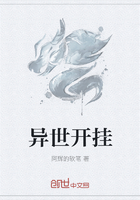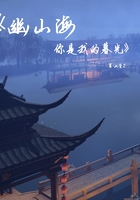IT WAS some weeks before Vincent was able to walk unaided.
His convalescence was somewhat slow, for the shock to the system had been a severe one.The long rail-way journey had been injurious to him, for the bandage had become somewhat loose and the broken pieces of bone had grated upon each other, and were much longer in knitting together than they would have been had he been treated on the spot.
As soon as he could walk he began to be anxious to rejoin his troop, but the doctor said that many weeks must elapse before he would be ready to undergo the hardships of campaign.He was reconciled to some extent to the delay by letters from his friends with the troop and by the perusal of the papers.There was nothing whatever doing in Virginia.The two armies still faced each other, the Northerners protected by the strong fortifications they had thrown up round Washington-fortifications much too formidable to be attacked by the Confederates, held as they were by a force immensely superior to their own, both in numbers and aims.
The Northerners were indeed hard at work, collecting and organizing an army which was to crush out the rebellion.General Scott had been succeeded by McClellan in the supreme command, and the new general was indefatigable in organizing the vast masses of men raised in tho North.So great were the efforts that in a few months after the defeat of Bull Run the North had 650,000men in arms.
But while no move had at present been made against Virginia there was sharp fighting in some of the border states, especially in Missouri and Kentucky, in both of which public opinion was much divided, and regiments were raised on both sides.
Various operations were now undertaken by the Federal fleet at points along the coast, and several important positions were taken and occupied, it being impossible for the Confederates to defend so long a line of sea-coast.The South had lost rather than gained ground in consequence of their victory at Bull Bun.For a time they had been unduly elated, and were disposed altogether to underrate their enemies and to believe that the struggle was as good as over.Thus, then, they made no effort at ail corresponding to that of the North; but as time went on, and they saw the vastness of the preparations made for their conquest, the people of the Southern States again bestirred themselves.
Owing to the North having the command of the sea, and shutting up all the principal ports, they had to rely upon themselves for everything, while the North could draw arms and ammunition and all the requisites of war from the markets of Europe.Foundries were accordingly established for the manufacture of artillery, and factories for muskets, ammunition, and percussion caps.The South had, in fact, to manufacture everything down to the cloth for her soldiers uniforms and the leather for their shoes; and, as in the past she had relied wholly upon the North for such goods, it was for a time impossible to supply the troops with even the most necessary articles.
The women throughout the States were set to work, spinning and weaving rough cloth, and ****** uniforms from it.Leather, however, cannot be produced all at once, and indeed with all their efforts the Confederate authorities were never throughout the war able to provide a sufficient supply of boots for the troops, and many a battle was won by soldiers who fought almost barefooted and who reshod themselves for the most part by stripping the boots from their dead foes.Many other articles could not be produced in the Southern States, and the Confederates suffered much from the want of proper medicines and surgical appliances.
For these and many other necessaries they had to depend solely upon the ships which succeeded in ****** their way through the enemy's cruisers and running the blockade of the ports.Wine, tea, coffee, and other imported articles soon became luxuries beyond the means of all, even the very wealthy.All sorts of substitutes were used; grain roasted and ground being chiefly used as a substitute for coffee.Hitherto the South bad been principally occupied in raising cotton and tobacco, depending chiefly upon the North for food; and it was necessary now to abandon the cultivation of products for which they had no sale, and to devote the land to the growth of maize and other crops for food.
By the time that the long period of inaction came to a close, Vincent had completely recovered his strength, and was ready to rejoin the ranks as soon as the order came from Colonel Stuart, who had promised to send for him directly there was a prospect of active service.
One of Vincent's first questions as soon as he became convalescent was whether a letter had been received from Tony.
It had come, he was told, among the last batch of letters that crossed the frontier before the outbreak of hostilities, and Mrs.
Wingfleld, had, as be had requested, opened it.As had been arranged, it had merely contained Tony's address at a village near Montreal; for Vincent had warned him to say nothing in the letter, for there was no saying, in the troubled times which were approaching when Tony left, into whose hands it might fall.
Vincent had before starting told his mother of the share he had taken in getting the negro safely away, and Mrs.Wingfield, brought up as she had been to regard those who assisted runaway slaves to escape in the same light as those who assisted to steal any other kind of property, was at first greatly shocked when she heard that her son had taken part in such an enterprise, however worthy of compassion the slave might be, and however brutal the master from whose hands he had fled.However, as Vincent was on the point of starting for the war to meet danger, and possibly death, in the defense of Virginia, she had said little, and that little was in reference rather to the imprudence of the course he had taken than to what she regarded in her own mind as its folly, and indeed its criminality.















